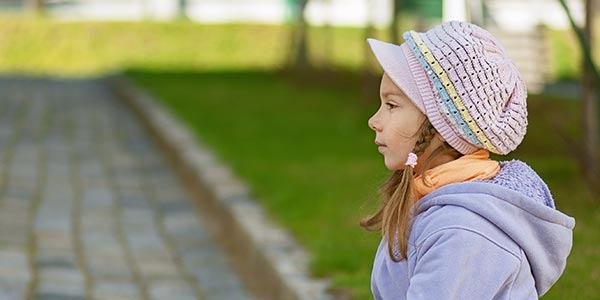Do childhood depression and guilt change the brain?

A recent study published in the journal JAMA Psychiatry found that children diagnosed with depression between the ages of 3 and 6 had more a small area in the brain that is involved in the formation of emotions compared to those who were in a normal psychological state.
The researchers, led by Andrew Belden, professor of child psychiatry at the Washington University School of Medicine in St. Louis, Missouri, USA, note that their discovery may serve to more easily predict the development of future development of depression , based on the anatomical marker they identified that could be used in the peoplemost at risk.
The area of the brain that scientists are focusing their research on is the anterior insula. On both sides of the brain is the insula – a key area involved in the formation of emotions, sensations, self-awareness and cognitive functions.
To conduct the research, the team of scientists followed up 306 children for a period of 3 years, which took place between 3 and 6 years of their life. These are precisely the preschool years. Within the framework of the study, there were once a year examinations of the children with a view to establishing depression or feelings of guilt.
In addition, all children underwent magnetic resonance imaging every 18 months when they were between the ages of 7 and 13.
A total of 47 children were diagnosed with depression during their preschool years, and 82 were confirmed not to be depressed.
Of those with depression, 55% demonstrated signs of pathological guilt. 20% of the non-depressed children were found to have very strong feelings of guilt at follow-up.
Researchers explain that pathological guilt is likely a symptom of clinical depression and other mental disorders, such as anxiety, obsessive-compulsive or bipolar disorder.
The scientists who conducted the study give the following example. A child with a pathological sense of guilt enters a room in which there is a broken lamp. But even if it didn’t do the wrong thing, it will start apologizing.
Even after the child says it is not his fault, he will continue to apologize and feel bad.
But the main question, according to the scientists, is whether depressed children are more prone to feeling guilty or whether children prone to feeling guilty are more likely to be depressed.
Children with a smaller right insula are more likely to become depressed as adults.
The results of the 3-year study are conclusive and show that children with smaller right insula are more prone to repeated bouts of clinical depression in adulthood.
Scientists also noted that the size of the brain structure was smaller in children who showed signs of experiencing pathological guilt in the 3-6 age range.
And excessive guilt is a symptom of depression and affects the size of the insula.
But this, according to researchers, is not surprising, because for many years, excessive guilt has always been a precursor to depression, and the reverse correlation also holds true.
The findings suggest that guilt in the early years of life is associated with a reduction in the size of the insula.
And a previous study by a team of scientists from Washington University School of Medicine showed that children who suffered from depression in preschool were 2.5 times more likely to be clinically depressed in elementary and middle school.



